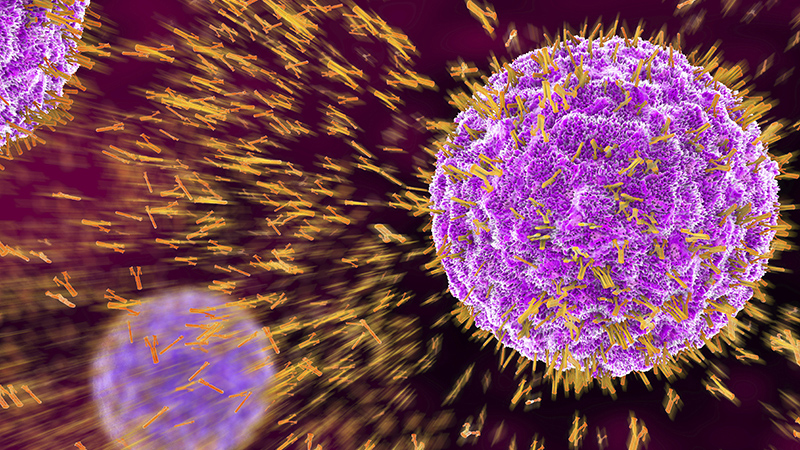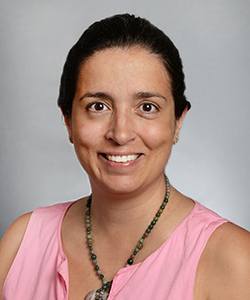
The National Institutes of Health has awarded University of Missouri School of Medicine Associate Professor Diana Gil Pagés, PhD, $3.7 million to study a type of immunotherapy that increases the sensitivity of the body’s immune system to fight metastatic melanoma.

“There’s a big mystery in the field of cancer research that we are trying to solve: why some immunotherapies work for some people, but not for others,” Gil Pagés said. “We hope to answer that question to better predict whether a particular immunotherapy treatment will work in a patient.”
Cancer is the second leading cause of death globally, leading to nearly 1 in 6 deaths worldwide. New cancer discoveries are saving or prolonging lives, but some of these treatments may be uncomfortable or painful. Immunotherapy has become an attractive treatment option for many types of cancer because it uses a patient’s immune system to specifically target cancer cells, unlike chemotherapy and radiation that affect healthy tissue. However, researchers are still learning how to best stimulate the appropriate immune response in each patient to target specific cancers and avoid undesired side effects.
Gil Pagés, who holds a dual appointment as an associate professor of surgery at the MU School of Medicine and bioengineering at the MU College of Agriculture, Food and Natural Resources, was recruited to Missouri through a campus-wide collaboration that included the Department of Surgery, the Molecular Microbiology and Immunology Department as well as the College of Engineering. She hopes to further immunotherapy understanding and effectiveness by teaching the immune system how to recognize and attack cancer cells. Gil Pagés hypothesizes that by injecting a compound called “fab fragment” that targets specifically the immune system’s T cells, those cells will become more sensitive to potential threats. It’s a technique similar to equipping a home with an advanced security system to better detect an intruder.
“We’re going to push the limits of the T cells to help them recognize tumor cells, when normally they are trained to ignore them,” Gil Pagés said. “The hope is to better utilize our own immune system to fight the cancer, while also learning about the safety of this technique.”
The study will examine the effectiveness and side effects of the immunotherapy in different groups of mice. Some groups will consist of cloned mice with the same genetic makeup. Other groups will have mice with diverse genetics and disease histories that more closely mimic the variables of a human population. The goal is study how the immunotherapy-boosting technique works on its own and in combination with other types of immunotherapies on each group of mice.
“The immune experience is different in each human, so we are trying to introduce that variable in our mice,” Gil Pagés said. “We’re doing experiments when mice are genetically diverse and also immune diverse, so we can compare that to our simplified model where the mice have identical genes and no history of disease. The questions are going to be: is the treatment still efficient, and is it safe?”
This project is the first step in an effort to produce a new type of immunotherapy that may advance to be used alone or in combination with other treatments to prolong the survival of patients suffering from metastatic melanoma and other cancers. Future trials will be needed to reach the ultimate goal of helping cancer patients live longer, healthier lives.
“Developing diverse immunotherapies to then combine with more traditional approaches like surgery, radiotherapy and chemotherapy is going to be the key to cure cancer,” Gil Pagés said. “Separately, these approaches have less of a chance to become a universal cure because of the multiple mechanisms cancerous cells present to persist and come back, so you need as many tools as you can get to outsmart the cancer.”
This grant is part of the NIH “Cancer MoonShot Initiative,” which aims to make a decade’s worth of cancer research progress in five years; and a collaboration between several institutions that make up the Immuno-Oncology Translational Network, including Harvard, Yale and Johns Hopkins. Each participating institution is working on a different project involving the immune system’s ability to fight cancer. The grant runs through August 2024.





